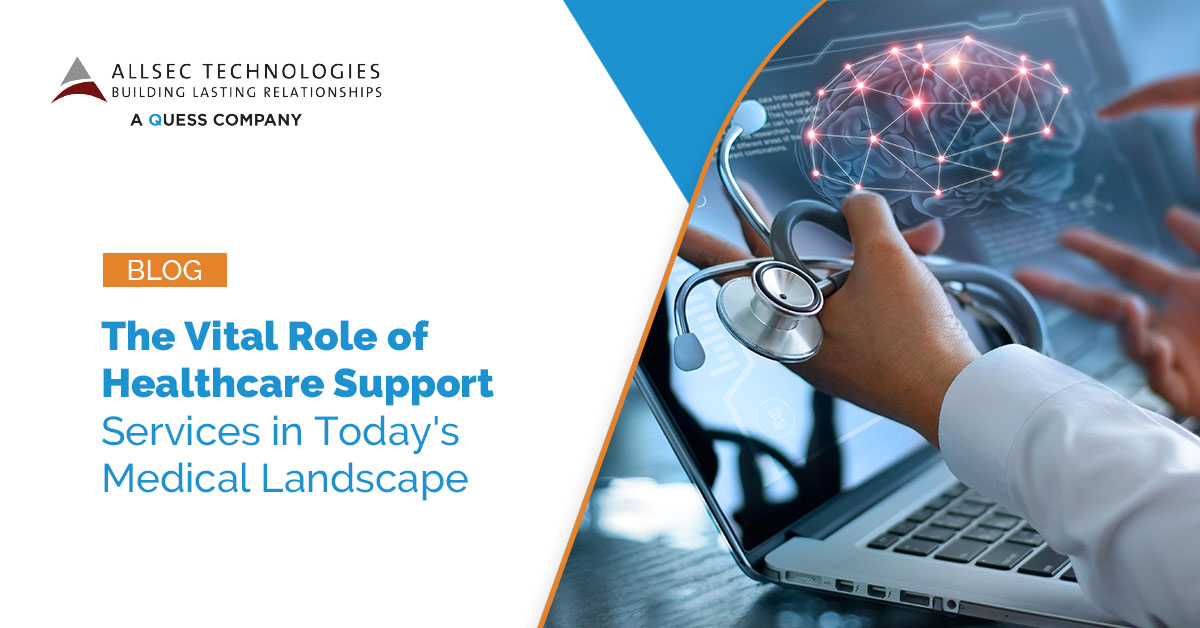
The healthcare landscape is constantly evolving, presenting new challenges and opportunities. Amidst this backdrop, healthcare support services emerge as indispensable pillars of the medical ecosystem. They streamline operations, enhance patient experiences, and optimize resource allocation, enabling healthcare professionals to focus on delivering exceptional patient care. In this blog, we will explore the significance of healthcare support services and how they contribute to the smooth functioning of healthcare facilities.
Administrative Efficiency
Efficient management of administrative tasks is a crucial component of healthcare support services. Recent studies, such as the one published in the Journal of Medical Practice Management, reveal that healthcare providers spend a significant portion of their time on administrative duties. By entrusting dedicated support staff with tasks like appointment scheduling, medical billing, and insurance claims, healthcare professionals can allocate more time to delivering quality patient care. This leads to improved patient outcomes and enhanced operational efficiency.
Patient Assistance and Engagement
Healthcare support services extend beyond administrative tasks to encompass patient assistance and engagement. Research by the Agency for Healthcare Research and Quality (AHRQ) shows that patients who receive support from healthcare support staff exhibit higher levels of engagement in their healthcare decisions. This involvement leads to improved patient compliance, reduced risk of readmissions, and overall better health outcomes.
Healthcare professionals are also increasingly embracing Electronic Health Record (EHR) systems, which transform the quality of care, improve clinician satisfaction, and facilitate patient decision-making. Accurate information from electronic health records (EHR) empowers physicians, improves patient care, and benefits medical and legal practices.
Decision-support features such as standardized checklists, alert signals, and predictive tools encourage the utilization of best practice alerts (BPAs) for more effective and efficient care. Notification signals and BPAs prompt the sharing of relevant information and help prevent potential adverse events.
Enhanced Patient Safety
Accurate documentation is crucial for ensuring patient safety and continuity of care. Healthcare support services provide comprehensive documentation support, ensuring that medical records are complete, up-to-date, and error-free. By maintaining accurate and detailed patient records, healthcare professionals can make informed decisions, reduce the risk of medical errors, and enhance patient safety.
Efficient Workflow and Resource Allocation
Efficient workflow management and optimal resource allocation are vital for healthcare organizations. Supply chain management plays a crucial role in this regard, ensuring the availability of essential medical equipment, medications, and supplies. Inefficient supply chain practices can lead to substantial financial losses. For instance, a survey conducted by Cardinal Health found that hospitals incur an estimated $5 billion in costs annually due to inefficient supply chain management. Healthcare support services enable streamlined operations, cost reduction, and waste minimization, thus contributing to financial stability and operational excellence.
Effective Communication and Coordination
Smooth communication and coordination among healthcare professionals are vital for patient safety. Healthcare support services facilitate efficient communication channels, ensuring that information flows seamlessly between different care providers, departments, and healthcare settings. This promotes collaboration, reduces the risk of miscommunication, and enhances patient safety through accurate and timely exchange of critical information.
Conclusion
The importance of healthcare support services in today’s medical field cannot be overstated. With the rise of chronic diseases, the ageing population, and the increasing demand for preventive care, these services alleviate strain by providing essential support, allowing clinical staff to focus on patient care.
From administrative efficiency and patient assistance to enhancing patient safety and optimizing resource allocation, these services are integral to the overall functioning of healthcare facilities. By recognizing the significance of healthcare support services and investing in their development, the medical field can continue to provide high-quality, patient-centered care. As healthcare evolves, the role of support services will only grow, ensuring that patients receive comprehensive and efficient care in a rapidly changing landscape.


